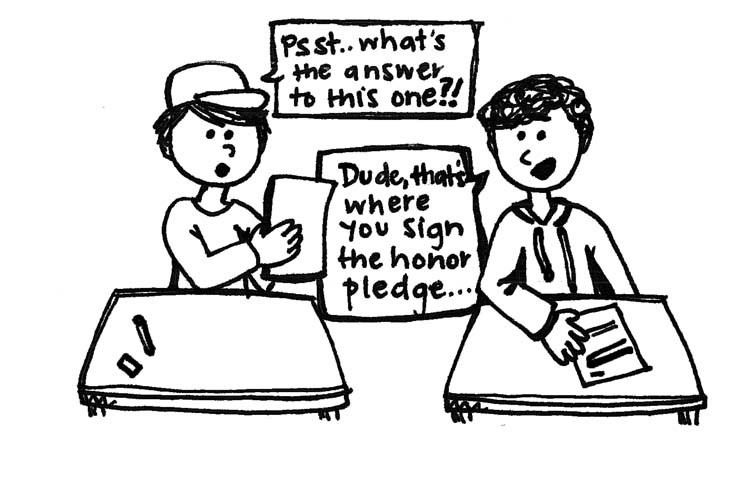Every year during freshmen orientation, all students at the College of William and Mary take the same oath: the Honor Code. We pledge not to lie, cheat or steal; and we are reminded of that on every blue book exam we take. As the home of the original student honor code, cheating is taken as a serious offense. Many professors are so confident in the honor code’s ability to deter students from cheating that they will leave the room while students are taking exams. However, the release of “The Shadow Scholar: How I Made a Living Helping College Kids Cheat” is a sad reminder that no school is immune to cheating.
The autobiography of academic ghostwriter David Tomar is meant to question what the value of a college education actually is. Tomar claims that he is like many students who feel betrayed after going to school only to find that they are surrounded by students who only care about receiving grades for classes rather than actually learning. Tomar claims that he was driven away from education by students who do not care about learning.
This story is particularly relevant to the College, especially at the start of a new academic year. I do not believe that students at the College are unconcerned about learning; on the contrary, I believe that students at the College are driven by learning — after all, the word TWAMP was coined for a reason. My concern is the student-driven emphasis on grades at the College. Students at the College excelled in high school; it is why we were accepted into the College in the first place. As such, we expect to make certain grades, and when we fail, we become either angry or disappointed in ourselves. Students will spend long hours in Earl Gregg Swem Library to write papers and lose countless hours of sleep to maintain their grade point average; some students may even resort to cheating in order to improve their grades.
GPAs are important — I know I have spent enough time worrying over grades during my time at the College. That said, grades should not be the ultimate goal of our time at the College. Students must realize that classes at the College are hard, and if they put forth a decent effort, they will survive. I am disturbed by how much emphasis is put on grades at the College and how ingrained it is into the culture of campus. After all, we are only here for four years; what will your GPA matter 10 years after graduation?
Professors are understanding of the workloads students face, and the faculty at the College does emphasize learning first. If professors can see that students are putting effort into learning and analyzing the material, they will be understanding in granting extensions and helping students succeed.
Over the past several years, the College has been working to provide the best possible mental health care on campus; however, these implementations alone are not effective. As long as the culture at the College revolves around worrying about grades and bragging about the number of hours spent studying for an exam, students will remain stressed.
Cheating does occur at the College: The Tomar autobiography serves as a bleak reminder of that fact. I believe that cheating at the College happens, though, because students are so focused on the grade that they forget that the whole point of College is to learn, not to make an A. As we begin this new school year, I hope students will place less emphasis on grading and more emphasis on learning. In addition to reducing cases of cheating at the College, we can create a happier and healthier environment for learning.
Email Elizabeth DeBusk at epdebusk@email.wm.edu.


[…] Image from The Flat Hat […]